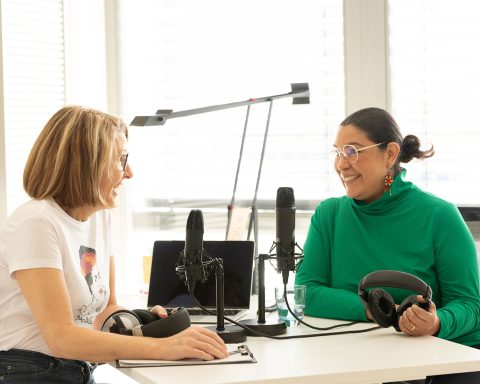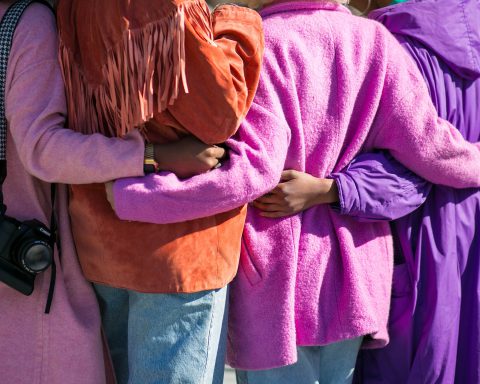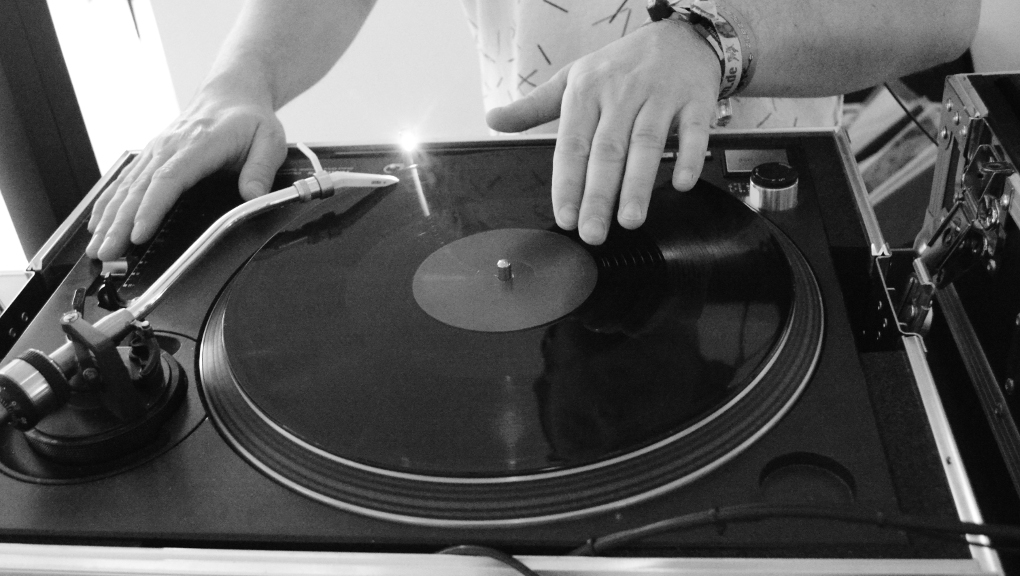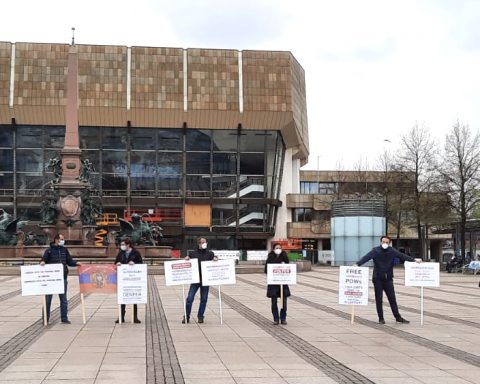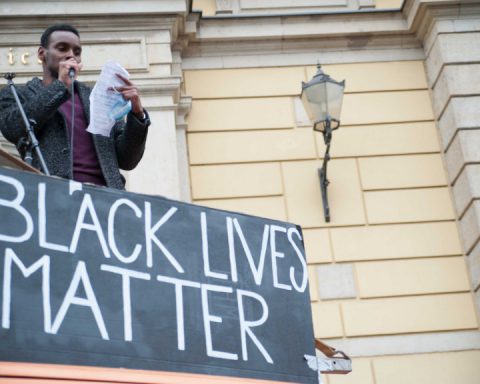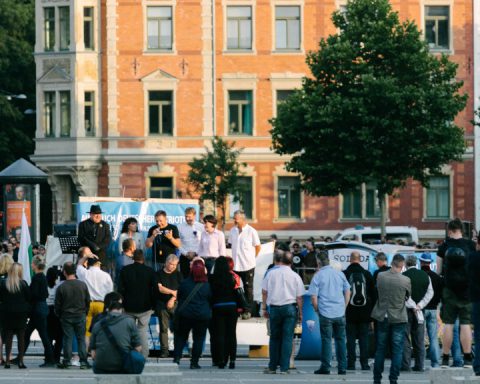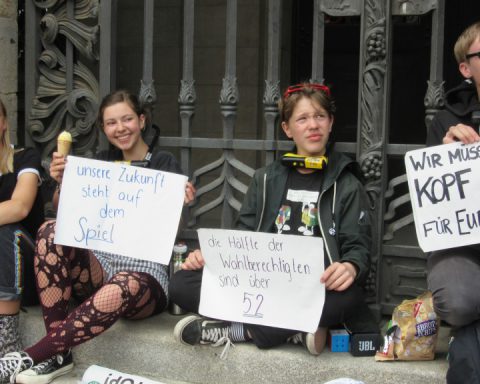I have always been passionate about women’s rights. When I was a young girl, my mother would recite these detailed stories about how difficult it was for her as a girl to attend school. She would have to walk miles to get there every morning, covered in layers and layers of clothing that had to be approved by her father before she left the house.
No skin was allowed to be shown. No shoulders or legs or arms. She said she didn’t mind… as long as she could go to class. She managed to accomplish all of this, day after day, under the unforgiving Honduran heat.
However difficult the journey, she considered herself blessed compared to other girls in her village who had to stay home to cook and wash clothes by the river that she passed by every morning.

This was only one of the many stories I heard growing up, and I remember feeling angry. I was sad as well… but mostly furious at the idea that only some girls were permitted to attend school.
“Why couldn’t all the girls go? Girls were just as capable as boys?”
My mother explained to me then that if a family could only afford to send one child to school, it would most certainly be the boy or the boys in the family. The girl was never the priority. She was not as worthy as a son.
Alarming statistics provided by UN Women and UNESCO inform us there are still 31 million girls who are not enrolled in primary school. Pakistan, Ethiopia, and Nigeria are the three countries in the world with the highest number of girls who are not receiving an education.
Reaching equal education is possible, but progress has been slow. There are still 116 million girls in developing countries who have never finished primary school, and therefore do not have any skills that would allow them to pursue employment.
These stories have stayed with me as an adult and as a woman.
It was the reason I began studying journalism after undergrad and why I had created my blog, The Digital Diaries. It’s a website dedicated to a number of different issues that affect women worldwide. I had written about genital mutilation, honor killings, femicide in Italy, and more.
Still, the more time that I spent digging for information, the more I felt like I was not doing enough to spread awareness for women’s rights.
“Am I really helping these women? Or simply sitting behind a screen, one small voice out of a million, doing very little for them?”
That’s when I thought of starting a campaign. The idea took flight after reading Malala Yousafzai’s miraculous book, I am Malala. I was inspired by her efforts to encourage girls to stand up for their education.
At such a young age, she displayed courage, commitment, perseverance, and compassion. All for a cause she truly believed in: education for all.
Soon after that, I joined the HeforShe program, which also focuses on education for women and girls, ending violence against women, and promoting work equality. The program inspired me even more than ever before.
I thought maybe if I combined my journalistic writing with my passion for women’s rights, I would be able to create my own program – focusing on not just one issue, but an entire range of issues that affect women globally. Hence the idea for the “Global Girls Campaign.”
The Global Girls Campaign (TGGC) will work to ensure that action is taken to end injustices against girls and women on a worldwide scale.
While there are campaigns that focus on one aspect of gender equality, TGGC aims to target a variety of problems that girls and women face today, particularly in developing countries. I believe that it is well past time to take as many measures as possible to address these issues and as soon as possible.
TGCC aims to address gender inequality on an international level, through a series of different projects and fundraising.
It has been created to promote girl’s education, to end child marriages, to stop honor killings, female genital mutilation, and sex trafficking, to end menstrual taboo and a number of other factors that affect women around the world.
We must be the change we want to see in the near future and I truly believe we can accomplish this, together.
I believe that it is not enough to simply sympathize with these women. We must take action. Voices that echo with passion and determination are the key to ending these rights violations.
It is a chance for others to stand up and to be the voice of change that is desperately needed.
It is a chance for everyone to openly confront rape culture and all forms of femicide and gendercide, and to challenge the deeply rooted social norms that enable and encourage these cycles.
The campaign essentially allows you to choose your cause and take action. It is also a safe haven for women to come together and tell their stories.
As I previously mentioned, many cultures teach girls at a young age that they are not required to pursue an education. For example, if a girl is brought up in a household with at least one brother, it is not considered necessary or profitable for the girl to go to school because she will not be of any value compared to her brother(s).
The brother and male figures of the household are deemed more worthy and respectable. Meanwhile, the women are restricted, forced to abide by limiting societal rules.
Often, girls in developing nations are told at a young and impressionable age that they should abide by the laws of their culture, even if it means that they are constantly placed in dangerous situations. This is heartbreaking for several reasons.
One, in particular, is that many people have this notion that they themselves as individuals are too powerless to stop these violations. But that is not true.
A major issue in terms of making significant progress includes the fact that many people are unaware of just how dire a young girl’s situation can be in an environment that prohibits her from doing what many other girls can do elsewhere. One example is menstruation.
They cannot afford or have access to sanitary products for their periods and are forced to stay home, missing days at a time and losing valuable school time. Girls in Nepal have been told that they must live in isolation; in harsh and unlivable conditions solely due to their menstruation.
Many women die in those conditions solely because of a natural bodily function.
Another example includes one of the most dangerous crimes against women, which still does not receive enough attention from the mainstream media: female genital mutilation. FGM is a life threatening procedure that has no health benefits and is usually performed with items such as shards of glass, scalpels, or rusted blades.
In order to achieve awareness and to educate the public further, larger audiences must be reached, and this is possible through a number of tools. Social media, art exhibitions, clothing for a cause, public events, and documentaries are just a few examples of how to educate the public on women’s rights and the issues that they face, and to encourage others to take positive action.
The Global Girls Campaign aims to use such vehicles to address these causes in the near future. The aptly named “Clothing for a Cause” is one of the first projects that is nearly completed and ready to launch.
While there are so many of us who sympathize with the situations that we read about, we must also take the time to fully learn and absorb the brutal living conditions that these women must suffer through on a daily basis. Steps need to be taken to spread awareness and create change.
Initiating projects, making documentaries, creating art, starting fundraisers, creating programs… all of this can all be valuable ways to wake up the world and encourage others to contribute to the many different causes that require immediate attention.
I am visiting Tanzania as we speak, with the GoEco foundation, in a project focusing on girls’ education.

This particular project is designed to help raise the dreams and hopes for young girls in Moshi, many of who find themselves unable to attend school because they are seen as more useful in the house or because they become pregnant at an early age.
The program is designed to help teach these girls about the value of education and their own self-worth. I will be able to get a close and personal look into the daily struggles that many of these girls must overcome to gain an education.
By acquiring this insight, I will be able to explain in greater detail just how important these issues are. And hopefully in the future, with enough fundraising, the TGGC will be able to raise enough money to provide more resources and staff members for these schools and many others.
Always remember that education is a right and should not only be seen as a privilege.

We should always stand up for women and openly declare that a girl’s body and mind are her own right and that her everyday choices are all her own. No one should have the authority to command how a girl or woman should pursue her own life. No human being should be treated in such a manner.
To truly think over and learn about these tragic stories has inspired me to take action, and I hope that it will inspire you all to do the same.
The journey will be long, difficult and overwhelming, but hopefully, in the end, there will be lives that can be changed for the better.
I am hoping that The Global Girls Campaign will include girls and women from around the world to come and voice their own stories. To create art that speaks out against the injustices placed upon women.
Other organizations that are passionate about ending female inequality and femicide are also wanted. Organizations are more than welcome to reach out!
TGGC is opening its arms to artists, writers, designers, event planners, directors… anyone is welcome to contribute. You can become part of the team by simply choosing to contact the Digital Diaries on its website. Or you can make a donation to the cause of your choosing.
The “Clothing for a Cause,” or Global Girls brand, includes eco-friendly tees and sustainable clothing with independent designs. Each piece of merchandise is intended for a different cause. The funds from that purchase will go towards the cause which the item represents.

There is still so much work to be done, but it is something worth waiting, working, and fighting for.
That is why I believe that anyone can make a difference.
I’d be glad if you’d keep up with the cause on Facebook, Twitter and Instragram.
By Catherine C. Davis
Feature photo: Catherine Davis reporting from Moshi, Tanzania.

![Wine & Paint event on 9 Nov. 2024 at Felix Restaurant, Leipzig. Photo: Florian Reime (@reime.visuals] / Wine & Paint Leipzig](https://leipglo.com/wp-content/uploads/2024/12/pixelcut-export-e1733056018933-480x384.jpeg)
